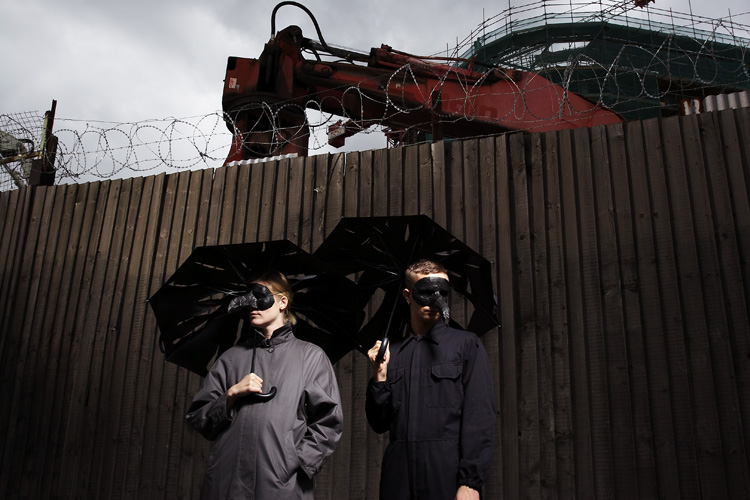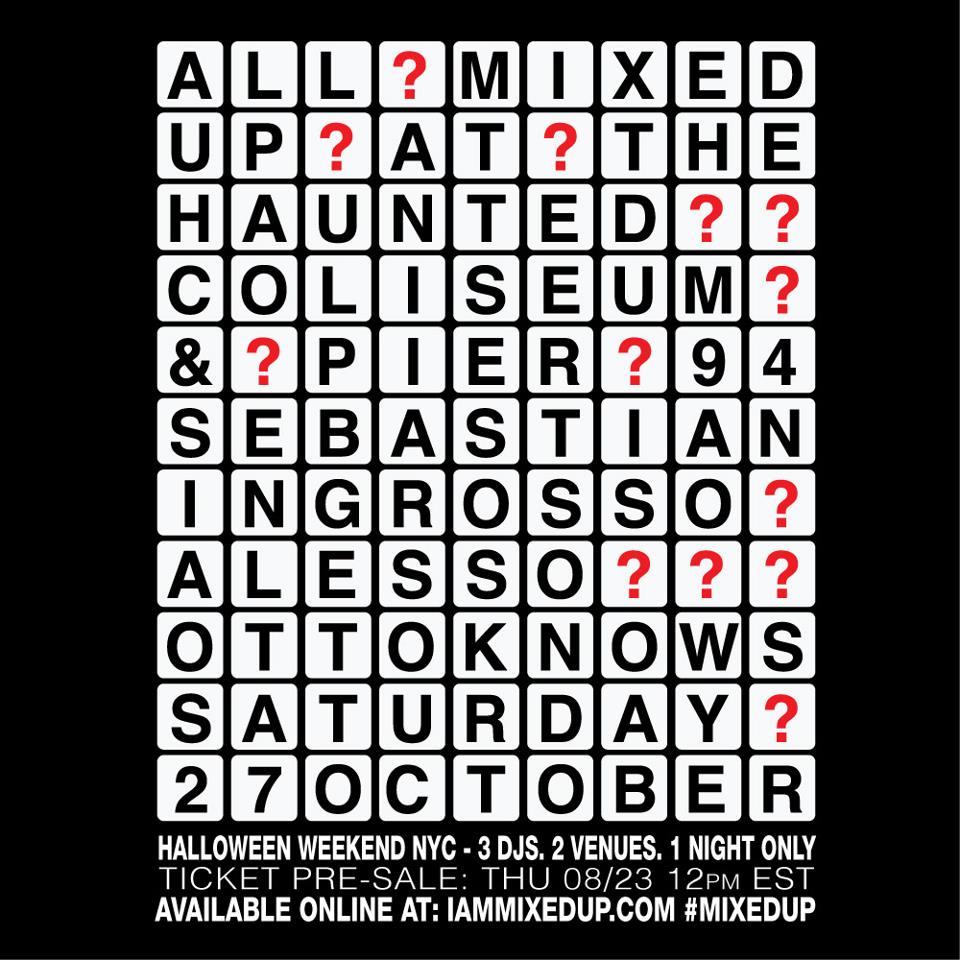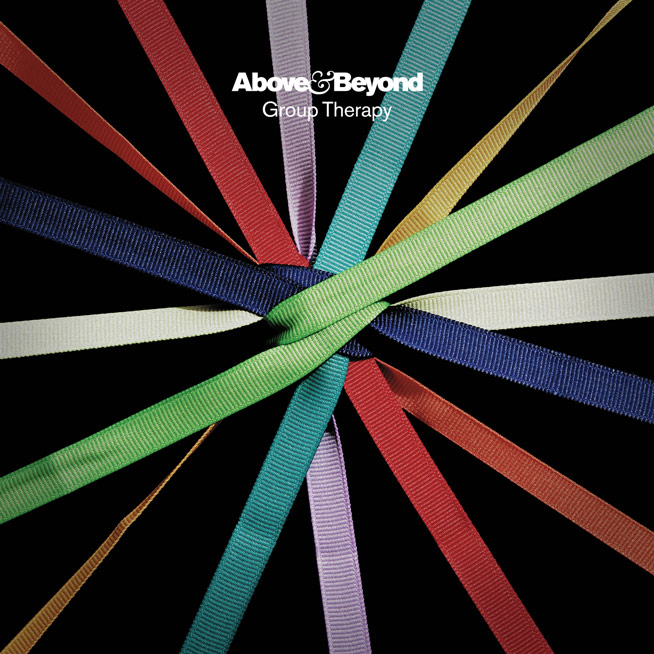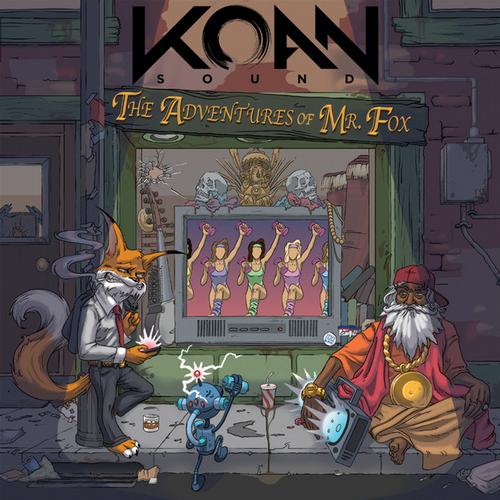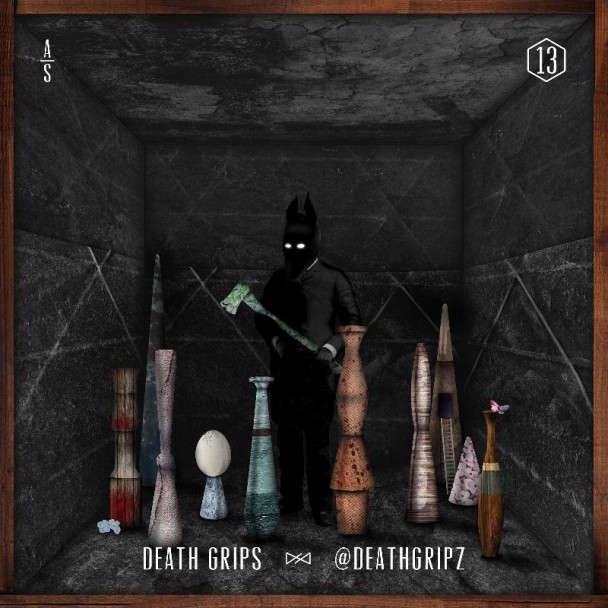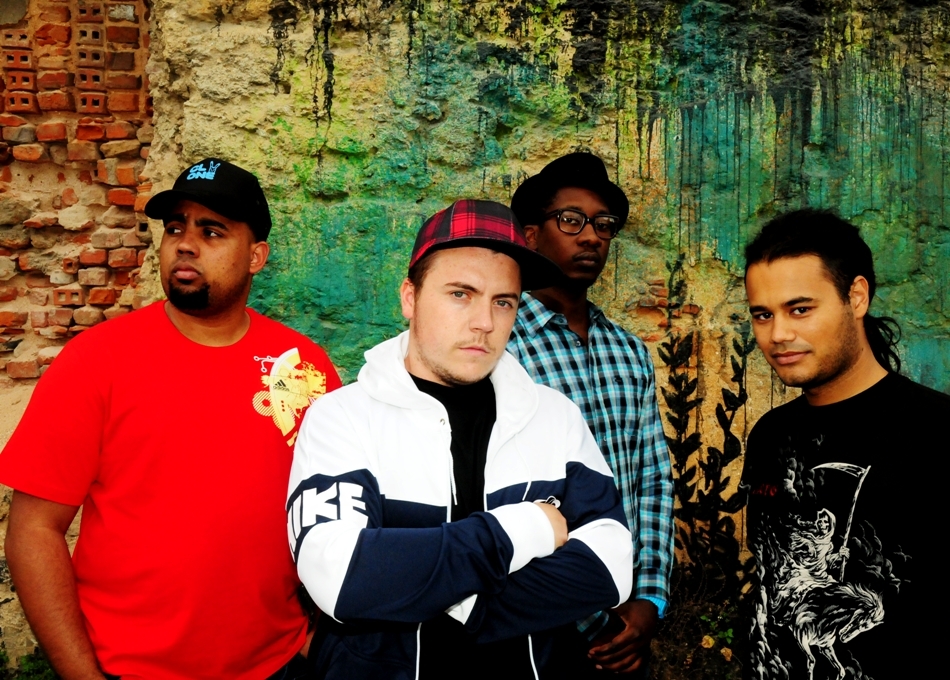There’s something in the water in Sweden. Or maybe it’s just a product of the frozen wastelands on the top of the world. Whatever it is, the Swedes have mastered the art of producing quirky, unique, and great music. Of course, the modern progressive house masters immediately come to mind—Avicii, Alesso, Marcus Schössow—but there’s also indie rock in the form of Mew, mainstream dance pop like ABBA and Ace of Base, and quiet, charming folk like Lykke Li. But perhaps one of the most interesting and unique music styles to come out of Sweden was created by brother-and-sister duo The Knife: since the release of their debut in 2001, Karin Dreijer Andersson and Olof Dreijer have blazed a synthpop trail, continuously evolving their sound and mutating the pop and dance forms into something entirely their own.
From the opening notes of Neon on the duo’s eponymous debut album, it’s already evident that this music is quite unlike anything else out there. The quirky wah-wah effect on the track’s lead melody is offset by a surprisingly substantial drum beat and a supporting melody courtesy of an unexpected alto saxophone. Bur perhaps the most unique part of The Knife’s music is Karin’s voice: so much more than just another instrument to add to the mix, her vocals have incredible personality that can easily be changed according to the situation. On Neon, Karin’s voice is a soft coo, reassuring and slightly ironic; likewise, on the heavier I Take Time, it shifts between a shrill shriek and a menacing whisper not unlike Björk. Musically, the band’s debut album explores more traditional pathways of electro and synthpop, while making some quirky and idiosyncratic changes to make the music their own.
The Knife – Neon
The Knife – I Take Time
Their biggest hit to date is, of course, Heartbeats, the lead-off track from sophomore album Deep Cuts. Simultaneously an indication of the band’s razor-sharp musical stylings and a rather obscure reference to lesser-known tunes known only to fanatical followers, Deep Cuts took much of what the band established on The Knife and elevated it significantly: continuing to carve out their unique style, Heartbeats became something of a litmus test for Knife-inspired weirdness. First propelled to fame by a beautiful folk cover courtesy of Jose Gonzalez, Heartbeats is a mid-tempo synthpop power ballad with an infectious and instantly memorable hook, cryptic lovelorn lyrics, and Karin’s impassioned alto soaring over synthetic soundscapes. By contrast, fellow Swedish electronic producer Rex the Dog’s funky house remix of Heartbeats succeeds through the use of clever vocal chops, effective sampling of the original track’s synth lead in the chorus, and a positively ecstatic last drop, enhancing the breezy upbeatness of the original in a perfectly euphoric house mix.
The Knife – Heartbeats
Jose Gonzalez – Heartbeats
The Knife – Heartbeats (Rex the Dog Remix)
As strange as Heartbeats is to the unindoctrinated listener, however, the rest of Deep Cuts represents an even more significant departure from normal. The feverish Girls’ Night Out features break beats, moaning multitracked backing vocals, and surprising melodic depth in the chorus. Pass This On tells a tongue-in-cheek story of a friend being in love with another friend’s brother, with this weirdness set off even more by steel drum and marimba portraying the majority of the melodic work. The deluxe edition of the album ends on an emotional note with The Bridge, a house-inspired instrumental with cascading synthscapes introducing the first straight-faced interpretation of melancholy and nostalgia present in The Knife’s back catalog.
The Knife – Girls’ Night Out
The Knife – Pass This On
The Knife – The Bridge
After the unexpected success of Jose Gonzalez’s cover of Heartbeats, it was clear that The Knife had no experience with—or perhaps no interest in—dealing with media and rabid fans. Despite winning several Swedish Grammis awards for Deep Cuts, the sibling duo boycotted the music awards with a protest representing male dominance in the music industry. They had never played a live show before 2006, and they refused to give interviews or participate in mainstream media in any way. To this day, they frequently hide their faces in public by wearing eerie Venetian plague doctor masks and elaborate costumes; during live performances, it would be difficult to even tell which one is which, if Karin wasn’t the group’s sole vocalist. Regardless of the blatant disregard for the media buzz surrounding the success of Heartbeats, The Knife held steadfast to their chosen weapons, alienating and isolating audiences with their looks almost as much as with their music.
Perhaps even as a reaction to this sudden critical and commercial success, The Knife made a drastic directional shift for their next album—one that would forever change the face of electronic music. Silent Shout opens with a single distorted, syncopated bass rhythm, joined by arpeggiated synthesizers dripping with unsettling atmosphere. The album’s opening title track introduces a new technique that became quite heavily utilized in subsequent works: constantly pitch-bending Karin’s already quirky and peculiar voice, The Knife’s success at creating a disturbing, unearthly, demonic chorus on Silent Shout augments the paranoia and spare aggression of the track’s instrumental. Gradually building from a single theme throughout the entire track, the massive explosion of wildly-improvised arpeggios in the penultimate section marks the advent of a new style of music: a sort of progressive minimal technopop, marred with the darkness of modern voice-distorting technology and a despairing, inhuman character heretofore unheard of. The ultra-artistic music video is no less outwardly present: a nightmarish hellscape of arcane symbols, deformed creatures, and a distinct mockery of trippy 70s acid rock visualizations, the video fits the track in tone, mood, and brilliance.
The Knife – Silent Shout
Silent Shout continues to build in depth and eerie irreverence for pop and dance music throughout its eleven tracks. We Share Our Mothers’ Health is a shrill, aggressive clamor of distorted glass samples, beefy electro basslines, and Karin’s sharp, accusing shriek, screaming about nothing less than environmental preservation. Also of note is Trentemöller’s dynamic techno retool of the track; the Dutch minimal master steadily accumulates the focused rage of the original into a tension-filled build near the end, with the overall effect at the last drop being one of simultaneous thematic cerebralness and celebratory carnal joy—a combination so confusing and invigorating that it’s almost a paradox. Marble House is an enrapturing tale of a codependent relationship gone terribly wrong, or perhaps something far more enigmatic and sinister; falling into a more traditional pop song structure, Marble House is perhaps the only bit of “normalcy” present in the midst of the insane darkness of Silent Shout, with Karin’s voice toned down a bit, though still pitch-bent beyond recognition in many places. Like A Pen begins with a carefully arranged series of snappy ‘pop’s and the world’s largest rubber band being repeatedly stretched and vibrated; a shockingly powerful bass kick joins the mix as the pops become more and more hurried and frantic, before a menacing and aggressive Karin enters with a self-deprecating commentary on ridiculous modern beauty standards and eating disorders (“you’re now my only friend/I’m too heavy, I’m a burden”). The shockingly relevant perception of contemporary political and social issues is perhaps what sets the whole of Silent Shout over the edge from brilliant electronic album to modern masterpiece: not content with creating music containing content that is blasé at best and utterly offensive at its worst, Karin and Olof are completely dedicated to a holistic view of music as art rather than simple entertainment.
The Knife – We Share Our Mothers’ Health
The Knife – We Share Our Mothers’ Health (Trentemöller Remix)
The Knife – Marble House
The Knife – Like A Pen
The live accompaniment of Silent Shout is no compulsory, throwaway recording, either; drastically changing the arrangements of almost every song performed live, The Knife’s visual interpretation of their back catalogue is shocking to behold. Coloring many of the tracks from their first two albums in the dark, paranoid style of Silent Shout, the siblings created a full audio-visual live show, with lights, LCD screens, and a unique stage setup. Even just the album itself is truly something special: a retooled live version of Kino, a bouncy synthpop tune from the group’s debut, sees the track translated into a thumping, aggressive testament to the enduring power of intelligent composition and alteration in any music style. Leading directly into Heartbeats, the transition is almost jarring; toning down the tongue-in-cheek electronica of the original, the live recording’s kick emulates an actual heartbeat, while a gentle translation of the arpeggio lead supports a highly emotional Karin. The underlying nature of the song is truly shown in the revelatory final chorus: adding in gentle strings to back the plunky bassline, legato lead hook and Karin’s impassioned vocal dedication, this live rearrangement of Heartbeats ends up being so much more than its original intent: a heartbreaking, nostalgic torch song, illuminating the power of pop music at its finest.
The Knife – Kino (live)
The Knife – Heartbeats (live)
After the release of Silent Shout, the siblings announced their intent to dissolve their partnership and focus on other projects. Olof went on to DJ in nightclubs across Europe, release a few EPs under a pseudonym, and created remixes for the likes of Nine Inch Nails; Karin released the critically-acclaimed solo project Fever Ray, which also generated significant media buzz upon her extremely bizarre acceptance of a Swedish Grammi for the album. In 2009, the band also collaborated with Mt. Sims and Plantingrock on an opera entitled Tomorrow, In A Year, a piece based on Charles Darwin’s ubiquitous book On the Origin of Species. But perhaps the most exciting development in Knife-land is the announcement of a new album, under the duo’s former name, due out this year: if the past is any indication of the future, it will certainly be one to remember. Endlessly innovative and constantly evocative, The Knife has cemented a place of honor in the development of pop and electronica, and will hopefully continue showcasing the incredible talent out of Sweden as they blaze ahead.
